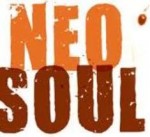 Post Classifieds
Post Classifieds
Tyler Perry's Kingdom and the Assassination of Black Cinema
Last year, film maker and playwright Tyler Perry was said to be the highest paid man in American entertainment. Forbes magazine reported that he had earned $130 million between May of 2010 and 2011. In just that one year he produced, wrote, directed and in two cases starred in, For Colored Girls, Madea's Big Happy Family and Why Did I Get Married Too, a sequel to his 2007 film Why Did I Get Married. These three films gathered a total of $151,188,155 at the box office.
However, the implications of his success far outreach his grasp. While Tyler Perry is the most auspicious black male in the film industry-- having been the only black male of the industry to own and operate a fully functional film production studio-- the content that he produces, most certainly destroys the integrity of his triumph. At the Black Enterprise Entrepreneur Conference in 2009, Spike Lee, in an interview with Ed Gordon ("Weekly With Ed Gordon") addressed the conflict presented by Tyler Perry's success.
"[Perry's Films] are coonery buffoonery," Lee says, "and we could do better." Having recently watched Tyler Perry's 2010 film Why Did I Get Married Too and his 2009 film I Can Do Bad All By Myself, I've found Spike Lee's conclusion tenable. Perry's characters hop and scream, over react, and play their skin color for laughs. Madea, an overweight, black woman played by Tyler Perry in I Can Do Bad All By Myself, is constantly threatening people with violence or attempting to correct the behaviors of other African-Americans.
Crafting a character for the purposes of providing mentorship is certainly not indefensible. Neither is the creation of a character who provides comic relief. Alone, these instruments of narrative progression are pedestrian and to a great degree audiences have come to expect them featured. However, when these common tropes are paired with the personal philosophy of this film—just as many on Tyler Perry's resume—the results are disastrous.
In the Tyler Perry universe, there doesn't seem to be a black middle class, rather, there is a a divide amongst black people along stereotypical lines: Characters are either good black—church going, morally upstanding-- or bad black—drug addicted, hedonistic and therefore selfish and poor of both riches and heart. In a scene where a struggling fourteen-year-old girl seeks Madea's advice on dealing with the rigors of raising her younger brothers alone (after her drug addicted mother died), the willfully ignorant Madea offers her solace with: "You have no reason to be sad. You're not on crack." Madea explains that in times of trouble she turns to God and the girl asks to be taught to pray. Madea obliges. Perry directs and acts this scene out with a concerning sincerity that truly conveys his belief that African-Americans only have two options in life: Smoking Crack or loving God.
Perry's belief in that strict divide, while certainly more prevalent in I Can Do Bad All By Myself, is further evidenced in his second film of 2010, Why Did I Get Married Too albeit, with less substantive screen time. After the group of married couples enters the gorgeous Bahaman resort, Perry's character pokes fun at one of his friends: "I'm gonna need some crack to deal with that woman."
Ed Gordon asks Spike Lee at the conference: "If we look at [Tyler Perry's success], the people who watch his films, the people who watch his shows... is this what black America wants to see?"
"A lot of it is on us," responds Lee. "You vote with your pocket book-your wallet...the man has a huge audience."
One of the most damning bits of offensive rhetoric comes from Perry's most successful film of 2011: Madea's Big Happy Family. When consoling a few friends at her kitchen table, Madea decides to use biblical scripture—to which she refers to as "perscriptures"-- to alleviate the stress of her middle aged friends: "You've got to find the right ‘perscripture'...," says Madea. "There's a ‘perscripture' that says ‘let the redeemed of the Lord say so'... so if you've been redeemed by the Lord and somebody does something you don't like- even if it's your kids- you can beat the hell out of them..."
Madea's Big Happy Family earned over fifty million dollars at the box office.
"Spike Lee can go straight to Hell." Tyler Perry tells Hiphollywood.com. "It's only black
people who do this to each other- I have never seen Jewish people complaining about Seinfeld, I've never seen Italian people complaining about The Sopranos. It's only us as Negroes that do this to each other." Despite Tyler Perry's usage of the politically incorrect term "Negroes" when referring to Black people, he touches on an interesting point. "Langston Hughes wrote that Zora Neal Hearston was the new version of the ‘Darkie'" continues Perry. "This woman wrote Their Eyes Were Watching God."
Now while Tyler Perry is most certainly-and unjustifiable- comparing himself to Zora Neal Hearston, Booker T. Washington or W.E.B Dubois, he begs upon a harsh question that has forever circulated amongst the debaters of race theory: What burden do black artists bear?
While it is easy to simply answer "none" or "some" the question becomes compounded when applied to the massive success of the Tyler Perry Empire. Perry made more money last year than Steven Spielberg, George Lucas, Martin Scorsesse and Harvey Weinstein. These are men that have built their production companies by navigating the corporatist structure of the new Hollywood studio system. It would be acceptable to suggest that they did not encounter the same institutionalized racism that the civil rights movement failed to obliterate. (Or at least encountering it was not as detrimental or nearly as detrimental to their success as it could be for a man of color) But Tyler Perry, an outsider, with a studio in Atlanta, managed to out earn the accepted masters of film making this past year. On several occasions I observed actors stumbling over their lines, mistiming their cues to speak, or in the worst of it, forgetting their lines all together and jumping too quickly on the dialogue when their memory kicks back in. These are amateur mistakes.
But for all the John Singleton's, Spike Lee's and Mario Van Peebles', the mass of the Tyler Perry Empire is being weighted against them in terms of economic viability. The Hollywood system, with a purchasing power not nearly as affected by the Great Recession as the rest of American industry, knows where to go for help crafting black cinema. They know which template to apply for the characters. Should they find themselves incapable of producing their own Black Cinema experience, they know who to pay to do it for them.
The King of the Tyler Perry Empire is prepared to absorb the cash flow. In exchange Perry will continue to contribute stereotypical images of Black people and their families under the assumption that he is providing good wholesome family entertainment for the Black community unaware of the damage he's doing. In a commercial featured on the Tyler Perry studio's website about their newest comedic television series For Better or Worse, a young black woman sits in a beauty salon and asks of an older black woman, "Do you think I should get married?" The older black woman replies: "If he ain't beating you, marry him!"
For Better or Worse had 3.4 million viewers for its Friday night premiere.
Get Top Stories Delivered Weekly
Recent The Catalyst News Articles
Discuss This Article
MOST POPULAR THE CATALYST

New Long Island Underground Railroad Sites Revealed in Prof's Latest Book By Executive Editor

The Underrated Genre: Neo-Soul By Alhia Harris

Women's History Month: Student Spotlight Interview By Alhia Harris
GET TOP STORIES DELIVERED WEEKLY
FOLLOW OUR NEWSPAPER
LATEST THE CATALYST NEWS
RECENT THE CATALYST CLASSIFIEDS
OUTSIDE THE LINES
- A Story To Sing About
- The Gap in Gum Care: Why Caring For Your Teeth’s F...
- Top Tips for Signature Scents and Better-Smelling Laundry
- A Dog Trainer’s Top Tips to Support Pets Through Life S...
- Clear the Air of Indoor Pollutants This Spring
- Stroke & Dementia in Black Men: Tips for Staying Healthy...
- Hispanics and African Americans at Higher Risk for Eye...
- African Americans at Higher Risk for Eye Disease
- Infinity Kings: Final Book In A Favorite Fantasy Series
- What You Need To Know About Keratoconus and the iLink...
FROM AROUND THE WEB
- Don’t Let Diabetes Shortchange Your Golden Years
- No Child is Forgotten By Marine Toys for Tots
- Sweeten Your Springtime Salads With Healthy Chilean Grapes
- Young Author Translates 4,000-Year-Old Text to Reveal...
- Keeping Cool and Energy-efficient Amid America’s “...
- Addressing Sarcopenia with a Healthy Diet
- Subway’s New Wraps Elevate Eating on the Go
- Family Teacher Conference Topics Beyond Academics
- Youth Take Down Tobacco
- BookTrib’s Bites: Four Reads to Kickoff Spring
COLLEGE PRESS RELEASES
- Shoff Promotions Comic Book & Sports Card Show
- Semiconductor Research Corp unveils 2024 Research Call, $13.8M Funding
- Charles River Associates Opens Second Scholarship Cycle, Expands to the UK
- BLUMHOUSE AND AMC THEATRES LAUNCH FIRST-EVER HALFWAY TO HALLOWEEN FILM FESTIVAL
- THE GEN Z IMPERATIVE: LISTEN TO FEELINGS AND GIVE GEN Z A VOICE











